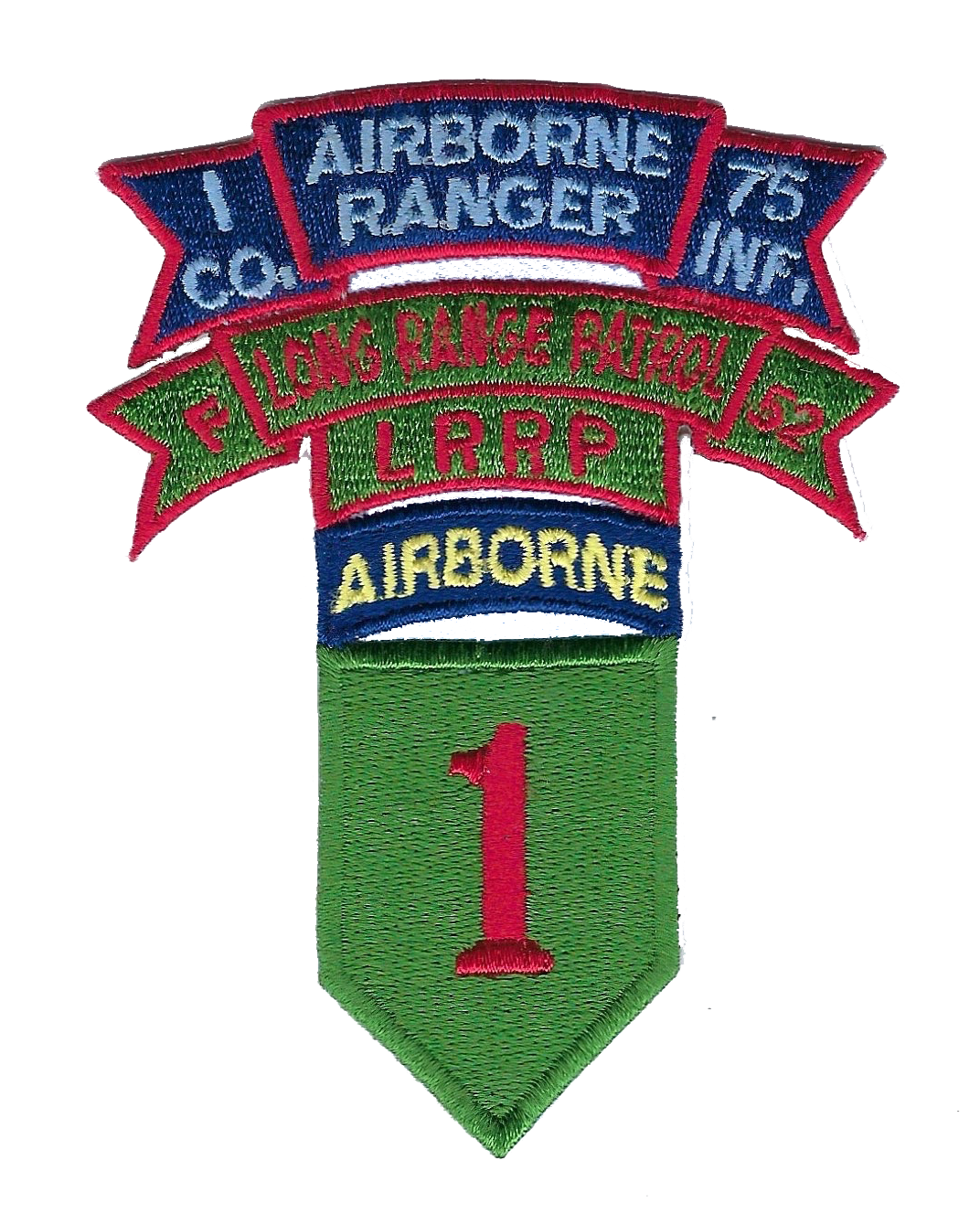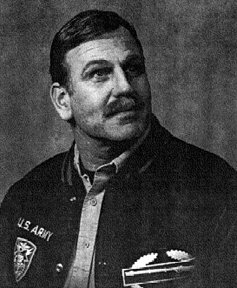Members of Our Unit Who are in
the Ranger Hall of Fame
1992
SPECIALIST FOUR ROBERT D. LAW
Specialist Four Robert D. Law is inducted into the Ranger Hall of Fame for extraordinary courage and gallantry in action as a Ranger-qualified soldier. Specialist Law is the first U.S. Army Ranger to be awarded the Medal of Honor while assigned to a U.S. Army Ranger unit. On February 22, 1969, while on a long-range reconnaissance patrol from Company I, (Ranger) 75th Infantry at Thinh Phuoc Thanh Province Vietnam, Specialist Law and his team engaged the enemy in a firefight. Attempting to disengage from the Ranger Team, the enemy threw gas grenades. Noting the Team's ammunition supply was low, Specialist Law rose to flank the enemy and exposed himself to enemy fire. He placed effective suppressive fire on the enemy, which forced them to throw a hand grenade to break contact with the Rangers. Instead of diving rearward to save his own life, Specialist Law threw himself on the grenade, absorbing the full blast, thus saving his teammates. Specialist Law's heroic actions illustrate the many sacrifices Rangers have made for their country, their unit, and their fellow Rangers.
1994
SERGEANT PETER C. LEMON
Sergeant Peter C. Lemon is inducted into the Ranger Hall of Fame for conspicuous gallantry and intrepidity in action at the risk of his life above and beyond the call of duty. On April 1, 1970 Sergeant Lemon distinguished himself while serving as an assistant machine gunner during the defense of Fire Support Base Illingworth in Tay Ninh Province, Republic of Vietnam. Sergeant Lemon engaged a numerically superior enemy with machine gun and rifle fire from his defensive position until both weapons malfunctioned. He then used hand grenades to fend off the intensive enemy attack launched in his direction. After eliminating all but one of the enemy soldiers in the immediate vicinity, he pursued and disposed of the remaining soldier in hand-to-hand combat. Despite fragment wounds from an exploding grenade, Sergeant Lemon regained his position, carried a more seriously wounded comrade to an aid station, and as he returned, was wounded again by enemy fire. Disregarding his personal injuries, he moved to his position through a hale of small arms and grenade fire. Sergeant Lemon immediately realized that the defensive sector was in danger of being overrun by the enemy and unhesitatingly assaulted the enemy soldiers by throwing hand grenades and engaging in hand-to-hand combat. Fully exposing himself to enemy fire Sergeant Lemon engaged the enemy until he collapsed from his wounds. After regaining consciousness he refused medical evacuation until those more seriously wounded had been evacuated. Sergeant Lemon's actions epitomized the Ranger Creed. "Surrender is not a Ranger Word"
1996
SERGEANT ORMAND B. CRABTREE
Sergeant Ormand B. Crabtree is inducted into the Ranger Hall of Fame for his contributions to the United States Army as a courageous and highly decorated Ranger. When Ormand B. Crabtree entered the Army, he displayed strong characteristics of a leader and was sent to the Noncommissioned Officers School immediately after Advanced Individual Training. He was assigned to the 1st Infantry Division, where he immediately volunteered for service with Company I (Ranger), 75th Infantry. He became a team leader of a Ranger team, conducting operations deep within enemy occupied territory. For his extraordinary heroism in connection with military operations involving conflict with an armed hostile force in the Republic of Vietnam, Sergeant Crabtree distinguished himself on May 11 and 12, 1969 as the leader of a six-man reconnaissance team that was inserted near a rubber plantation at Quang Loi, the site of Viet Cong activities. Sergeant Crabtree's team linked up with another six-man team in a night position. As the darkness and drizzle closed in, the team saw nearly thirty flashlights moving outside their perimeter. Closer and closer the enemy moved as Sergeant Crabtree desperately attempted to establish communications. Finally with a weak signal, he called in artillery and helicopter gunships. An increasing downpour of rain forced the gunships away and the team was left to its own defense. The following morning Sergeant Crabtree organized an ambush on ten enemy soldiers. When six escaped the killing blast and retaliated with a barrage of fire, Sergeant Crabtree led a flanking movement. From a concealed hostile emplacement erupted a fusillade that pinned him down before his maneuver was accomplished. Crawling to the enemy position, he destroyed it with grenades, allowing his team to charge the six enemy who broke and ran. When the team again encountered hostile fire from fortifications, Sergeant Crabtree deployed his men effectively and again crawled up to a machine gun position to knock it out with grenades. Sergeant Crabtree's leadership and personal heroics earned the Distinguished Service Cross, Silver Star and Bronze Star. Sergeant Crabtree is a example of Ranger fortitude and determination and embodies the Ranger creed, "Recognizing that I am a more elite soldier..."




